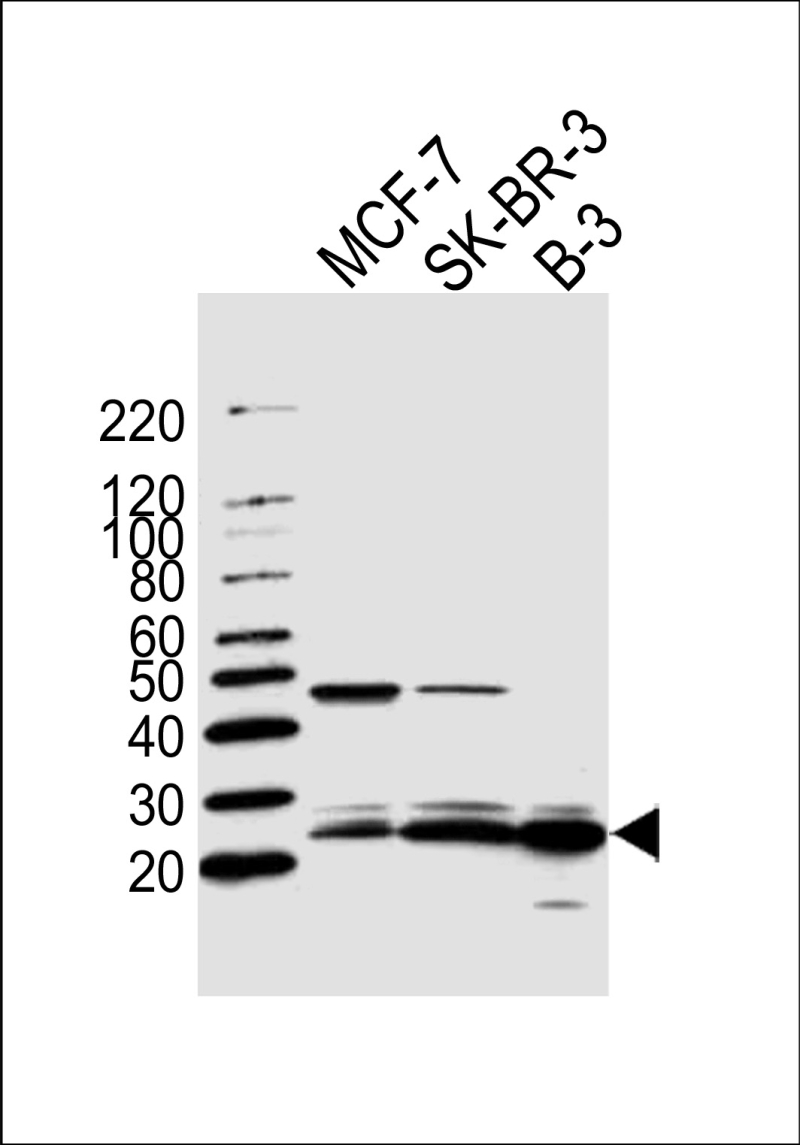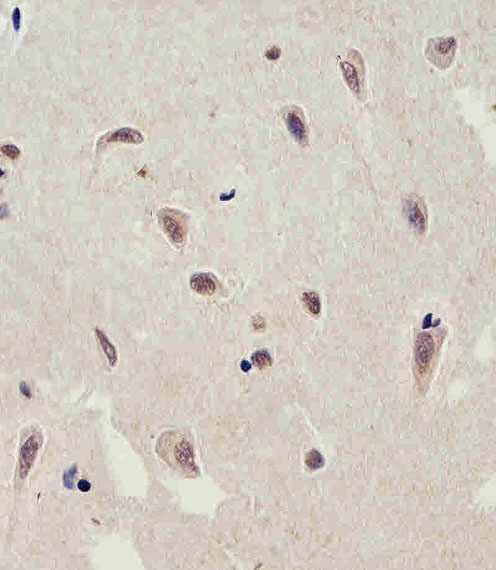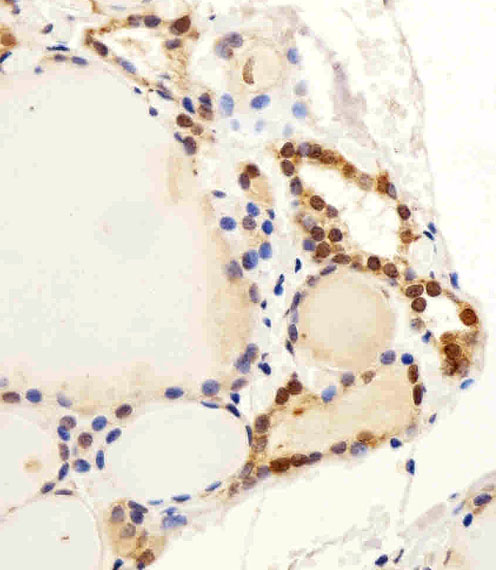


| WB | 1/1000 | Human,Mouse,Rat |
| IF | 咨询技术 | Human,Mouse,Rat |
| IHC | 1/100-1/500 | Human,Mouse,Rat |
| ICC | 技术咨询 | Human,Mouse,Rat |
| FCM | 咨询技术 | Human,Mouse,Rat |
| Elisa | 咨询技术 | Human,Mouse,Rat |
| Aliases | Protein FAM216B, FAM216B, C13orf30 |
| Entrez GeneID | 144809 |
| WB Predicted band size | 16.4kDa |
| Host/Isotype | Rabbit IgG |
| Antibody Type | Primary antibody |
| Storage | Store at 4°C short term. Aliquot and store at -20°C long term. Avoid freeze/thaw cycles. |
| Species Reactivity | Human |
| Immunogen | This C13orf30 antibody is generated from a rabbit immunized with a KLH conjugated synthetic peptide between 106-139 amino acids from the C-terminal region of human C13orf30. |
+ +
以下是关于C13orf30抗体的3篇参考文献示例(内容基于学术文献的典型描述,具体文献需根据实际数据库检索确认):
---
1. **文献名称**: *C13orf30/RDM1: A Novel DNA Repair Protein in Breast Cancer Pathogenesis*
**作者**: Smith S, et al.
**摘要**: 本研究通过免疫沉淀和Western blot技术,利用特异性C13orf30抗体,揭示了C13orf30(RDM1)在乳腺癌细胞DNA损伤修复中的关键作用,证明其与BRCA1复合物相互作用,影响同源重组修复效率。
2. **文献名称**: *Characterization of C13orf30 Antibody for Immunohistochemical Analysis in Ovarian Tumors*
**作者**: Lee J, et al.
**摘要**: 文章报道了一种高特异性C13orf30兔单克隆抗体的开发,并通过免疫组化验证其在卵巢癌组织中的表达模式,发现C13orf30低表达与患者预后不良显著相关。
3. **文献名称**: *Functional Role of C13orf30 in Genomic Stability: Insights from Knockdown and Antibody-Based Studies*
**作者**: Gupta R, et al.
**摘要**: 研究通过siRNA敲低和C13orf30抗体介导的蛋白定位分析,证实C13orf30在维持基因组稳定性中的作用,并发现其缺失导致染色体异常和细胞周期停滞。
---
**备注**:以上文献为示例,实际引用需通过PubMed、Web of Science或Google Scholar等平台以“C13orf30 antibody”“RDM1 antibody”等关键词检索真实文献。若需具体文章,建议补充检索条件(如年份、研究领域)。
The C13orf30 antibody targets the protein encoded by the C13orf30 gene (Chromosome 13 Open Reading Frame 30), also known as SPATA13 or FAM60A. This gene is located on human chromosome 13q12.11 and encodes a poorly characterized protein implicated in cellular processes such as cell migration, adhesion, and signal transduction. Studies suggest its involvement in integrin-mediated signaling pathways, potentially influencing cancer progression, particularly in breast cancer. The C13orf30 protein contains conserved domains, including a serine-rich region and a nuclear localization signal, though its full functional mechanisms remain under investigation.
C13orf30 antibodies are primarily used in research to detect and study the expression, localization, and interactions of the C13orf30 protein. These antibodies are typically monoclonal or polyclonal, generated in hosts like rabbits or mice, and validated for applications such as Western blotting, immunohistochemistry (IHC), and immunofluorescence (IF). Their development has facilitated insights into C13orf30's role in diseases, with overexpression observed in certain cancers, linking it to tumor invasiveness and metastasis. Dysregulation of C13orf30 has also been associated with neurological disorders, though evidence is limited.
Despite growing interest, comprehensive data on C13orf30's physiological and pathological roles are scarce. Current research focuses on clarifying its interaction networks and therapeutic potential, particularly in oncology. Antibodies against C13orf30 thus serve as critical tools for unraveling its biological significance and clinical relevance.
×